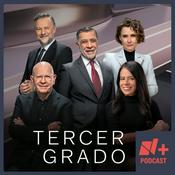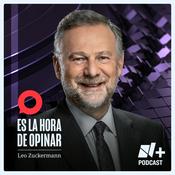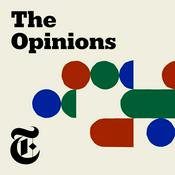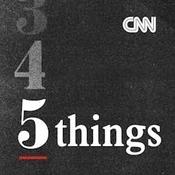143 episodios

Does Venezuela usher in an era of might is right?
07/1/2026 | 36 min
Bronwen Maddox is joined by Marc Weller, Director of Chatham House's International Law Programme; Laurel Rapp, Director of the US and North America Programme; and Christopher Sabatini, Senior Fellow for Latin America. They discuss the failure of regional diplomacy that preceded the 3 January 2026 attack by the US on Venezuela, the tentative response of the international community in its aftermath, the domestic impact on American politics, historic precedents like the 2003 invasion of Iraq, and how it is likely to influence Russia and China's actions in their regions. Read our latest: The US capture of President Nicolás Maduro – and attacks on Venezuela – have no justification in international law President Trump's ambition to rebuild Venezuela's oil sector will be challenging, especially if prices continue to fall Trump's Venezuela attack should serve as a warning even to US allies US intentions towards Greenland threaten NATO's future. But European countries are not helpless Presented by Bronwen Maddox. Produced by Stephen Farrell. Read the Winter issue of The World Today Listen to The Climate Briefing podcast 🎧 Listen to Africa Aware podcast 🎧 Subscribe to Independent Thinking wherever you find your podcasts - please listen, review, and subscribe.

Trump Year One – China's economic rivalry with the US is here to stay
15/12/2025 | 40 min
In the last Independent Thinking podcast of 2025, host Bronwen Maddox is joined by David Lubin, Senior Research Fellow with Chatham House's Global Economy and Finance Programme; Marion Messmer, Director of the International Security Programme; and Yu Jie, a senior research fellow on China in Chatham House's Asia-Pacific Programme. For further analysis read 'The economics of the new Monroe Doctrine' by David Lubin, examining how President Trump's actions seem to indicate the emergence of a hemispheric US foreign policy. Read our latest: Global security continued to unravel in 2025. Crucial tests are coming in 2026 The 'Trump Corollary' in the US security strategy brings a new focus on Latin America – but it is a disordered plan Russia is weakened, but its influence in the Middle East should not be underestimated Presented by Bronwen Maddox. Produced by Stephen Farrell. Read the Autumn issue of The World Today Listen to The Climate Briefing podcast 🎧 Listen to Africa Aware podcast 🎧 Subscribe to Independent Thinking wherever you find your podcasts - please listen, review, and subscribe.

What does Trump's national security strategy mean for Europe, China and Middle East?
08/12/2025 | 29 min
This is a special edition of Chatham House's Independent Thinking international affairs podcast, recorded at the Doha Forum 2025. Many of the official and backroom discussions at Qatar's annual gathering of more than 5,000 world leaders, policymakers, dialogue, corporate and humanitarian organizations from 162 countries were dominated by discussions of President Donald Trump's National Security Strategy, which was released on the eve of the forum. At one of the first events in the Doha Forum, Chatham House Director Bronwen Maddox questioned US Ambassador to NATO Mathew Whitaker about it. The podcast examines the implications for Europe, Asia, the Middle East and US foreign policy generally of the NSS document, which reinforces the Trump administration's 'America First' strategy, and contains stark language about Europe, talking about its 'economic decline' and 'the real and more stark prospect of civilizational erasure'. It also says: 'The days in which the Middle East dominated American foreign policy in both long-term planning and day-to-day execution are thankfully over.' Joining host Bronwen Maddox in Doha were: Leslie Vinjamuri, President and Chief Executive Officer, Chicago Council on Global Affairs, and Yu Jie, a Senior Research Fellow on China in Chatham House's Asia-Pacific Programme, and Renad Mansour, a Senior Research Fellow with the Middle East and North Africa Programme. Produced by Stephen Farrell and John Pollock.

Europe scrambles to avoid being sidelined on Ukraine
05/12/2025 | 28 min
How are Europe and Ukraine reacting after the US and Russia sought to strike their own deal, and Putin warned that Moscow – while not planning for war with Europe – is 'ready right now'. Host Bronwen Maddox is joined by Grégoire Roos, Director of the Europe and Russia and Eurasia Programmes; Natalie Sabanadze, a Senior Research Fellow and former Georgian Ambassador, and Jaroslava Barbieri, Research Fellow with our Ukraine Forum. Read Chatham House's report 'Tightening the oil-price cap to increase the pressure on Russia' about how the current international sanctions regime is failing, and how to fix it. Read our latest: Zelenskyy's right-hand man has gone. Here's what should happen next Putin's India visit aims to reaffirm New Delhi–Moscow relations – just as Trump applies pressure to downgrade them UK's indecision over Chinese 'mega-embassy' highlights need for a more coherent China policy Presented by Bronwen Maddox. Produced by Stephen Farrell. Read the Autumn issue of The World Today Listen to The Climate Briefing podcast 🎧 Listen to Africa Aware podcast 🎧 Subscribe to Independent Thinking wherever you find your podcasts - please listen, review, and subscribe.

Britain's budget – a recipe for growth or decline?
28/11/2025 | 28 min
Britain's Chancellor of the Exchequer Rachel Reeves published her – widely leaked – budget this week. How does it leave her ruling Labour Party positioned in Britain? And what do the calculations look like from overseas, where other countries have adopted different solutions to the problems facing them? For this discussion on Chatham House's international affairs podcast, host Bronwen Maddox is joined by Olivia O'Sullivan, Director of the UK in the World Programme. And, giving an international perspective on UK finances, are Sébastien Maillard, an Associate Fellow in the Europe Programme and James Kynge, a Senior Research Fellow for China and the World in the Asia-Pacific Programme. Read our latest: Trump's 28 point 'peace plan' marks Europe's last chance to stand up for Ukraine China's 'smart authoritarianism' has upended ideas about autocracies' limitations. The West must cooperate to respond Why an African Credit Rating Agency isn't a good idea for the region's borrowers Presented by Bronwen Maddox. Produced by Stephen Farrell. Read the Autumn issue of The World Today Listen to The Climate Briefing podcast 🎧 Listen to Africa Aware podcast 🎧 Subscribe to Independent Thinking wherever you find your podcasts - please listen, review, and subscribe.
Más podcasts de Noticias
Podcasts a la moda de Noticias
Acerca de Independent Thinking
Escucha Independent Thinking, El Noti y muchos más podcasts de todo el mundo con la aplicación de radio.net
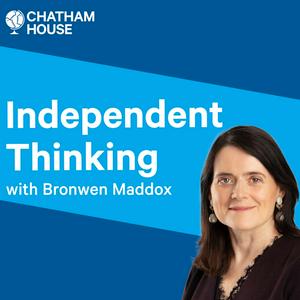
Descarga la app gratuita: radio.net
- Añadir radios y podcasts a favoritos
- Transmisión por Wi-Fi y Bluetooth
- Carplay & Android Auto compatible
- Muchas otras funciones de la app
Descarga la app gratuita: radio.net
- Añadir radios y podcasts a favoritos
- Transmisión por Wi-Fi y Bluetooth
- Carplay & Android Auto compatible
- Muchas otras funciones de la app


Independent Thinking
Descarga la app,
Escucha.
















